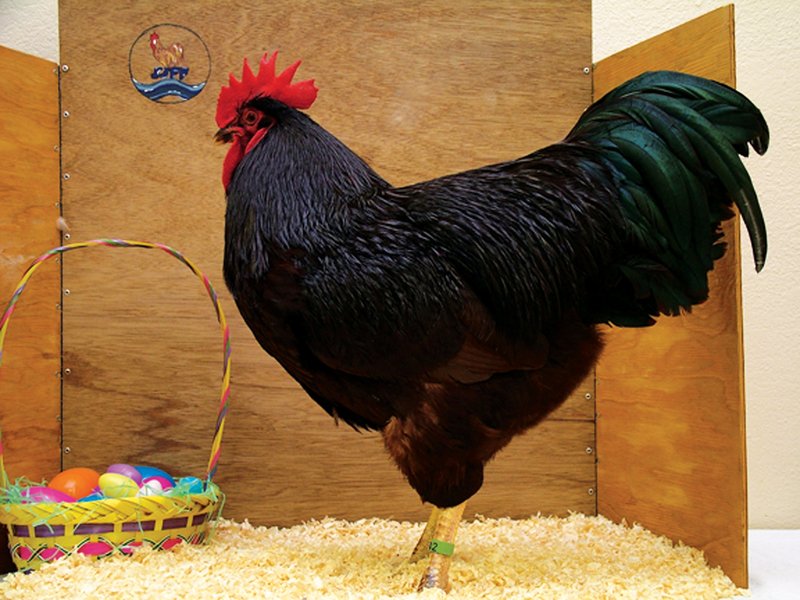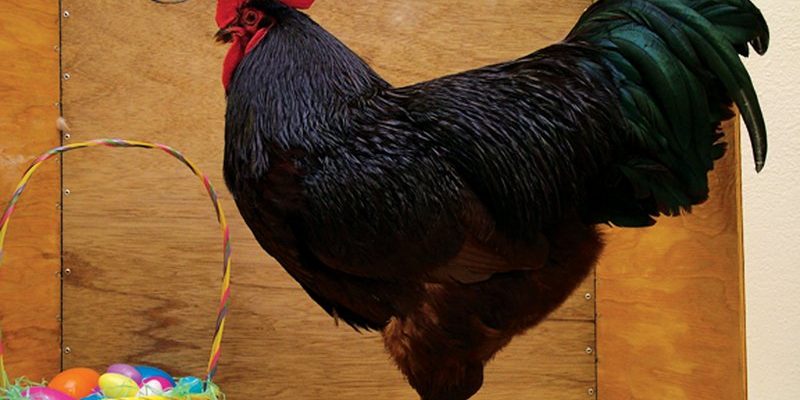
Just like how we express ourselves through different tones and inflections, Rhode Island Reds use a variety of vocalizations to convey feelings, needs, or alerts. If you’re new to chicken keeping or just curious about these lively birds, understanding their vocal expressions can deepen your connection with them. It’s like having a conversation with a friend, where every grunt or coo has a story behind it.
Now, let’s explore the fascinating world of Rhode Island Red vocalizations and what each sound might signify.
Common Vocalizations of Rhode Island Reds
Rhode Island Reds are known for their diverse range of sounds. Here are some of the most common vocalizations you’ll come across:
- Clucks: These are short, repetitive sounds that usually indicate contentment.
- Cackles: Loud and often longer, cackles are a sign of excitement or stress.
- Chirps: Soft and high-pitched, chirps are typically used by chicks or during bonding.
- Squawks: These sharp, loud noises usually mean something has startled them.
Each sound serves a purpose. For instance, clucks can often be heard when your Rhode Island Reds are pecking around in the yard, feeling relaxed and at home. On the other hand, a sudden squawk can be a warning sign that a predator might be near, alerting the others to take cover.
Understanding Clucks: The Sound of Contentment
When you hear a gentle series of clucks, it’s like your Rhode Island Reds are chatting amongst themselves, possibly discussing the best pecking spots in the yard. Clucks are generally a positive sound, indicating that the birds are relaxed and comfortable in their environment.
Imagine them settling down after a meal or basking in the sun. It’s their way of saying, “Life is good!” But, here’s the thing—you might notice that the tone and tempo can change slightly. Faster clucks might indicate they’re excited or a bit more alert, perhaps due to a nearby disturbance.
Understanding these subtleties can help you gauge their mood and environment better, allowing you to respond appropriately. If you hear a shift in those clucks, maybe it’s time to check on them or scan the area for any potential threats.
The Cackle: Excitement or Alarm?
Now let’s dive into cackles. Unlike the soothing clucks, cackles are louder and have a more urgent tone. Rhode Island Reds often cackle when they’re excited—maybe they’ve spotted a tasty bug or are engaging with each other during play.
However, they can also cackle when stressed or alarmed. Picture this: you step outside with a treat, and suddenly, all your hens erupt in excited cackles. It’s the sound of joy! But if they’re cackling away at an unexpected noise, it could signal a different story.
Understanding this vocalization gives you a window into their emotional state. If the cackling seems excessive or frantic, it’s wise to investigate why they might feel threatened or anxious.
Chirps: The Sweet Sounds of Chicks
Chirps are typically associated with younger birds, especially chicks. When Rhode Island Reds chirp, it’s like they’re having a sweet little conversation, often to communicate with their mothers or siblings.
These sounds are soft and high-pitched, designed to keep them in touch with each other when they wander off just a bit too far. Imagine a toddler calling for mom in a busy park—that’s the kind of bonding sound we’re talking about.
For adult Rhode Island Reds, chirping can also indicate curiosity or a gentle call among flock members. It’s a sound that suggests comfort and safety, something you definitely want to hear in your coop!
Understanding Squawks: The Alarm Signal
A sudden squawk can stop you in your tracks. It’s a sharp, attention-grabbing sound that usually indicates alarm. Your Rhode Island Reds might squawk if they see a predator or something they perceive as a threat, like a dog or a hawk overhead.
Imagine you’re walking in the woods and suddenly spot a snake; your instinct might lead you to shout out. That’s similar to what they’re doing with their vocalizations. Their squawks serve as urgent warnings to their flock, signaling that it’s time to be alert and take cover.
If you hear this sound, it’s crucial to check on your birds and ensure they feel safe. A strong environment will help reduce unnecessary stress and keep your flock calm.
Why Vocalizations Matter in Chicken Care
Understanding Rhode Island Red vocalizations isn’t just about curiosity; it plays a significant role in their care and well-being. These sounds can tell you a lot about their needs, health, and emotional state.
For instance, if your flock goes quiet, that could be a concern. Silence can indicate stress or illness, while regular vocalizations suggest contentment and health. Monitoring their vocal behaviors helps you create a safer, happier environment.
Listening closely also strengthens the bond you have with your hens. You become attuned to their emotions, making you a more attentive caretaker. Isn’t it rewarding to know that you can have such a meaningful relationship, built on understanding and communication?
In the vibrant world of Rhode Island Reds, their vocalizations are more than just noises—they’re expressions of personality, emotion, and needs. By tuning in to their clucks, cackles, chirps, and squawks, you’ll deepen your relationship with these remarkable birds.
So, the next time you hear those familiar sounds, take a moment to reflect on what they might be trying to tell you. You might discover that understanding your Rhode Island Reds goes beyond just feeding and caring for them—it’s about truly connecting with them. Keep listening, and you’ll find that your flock has a lot to say!

